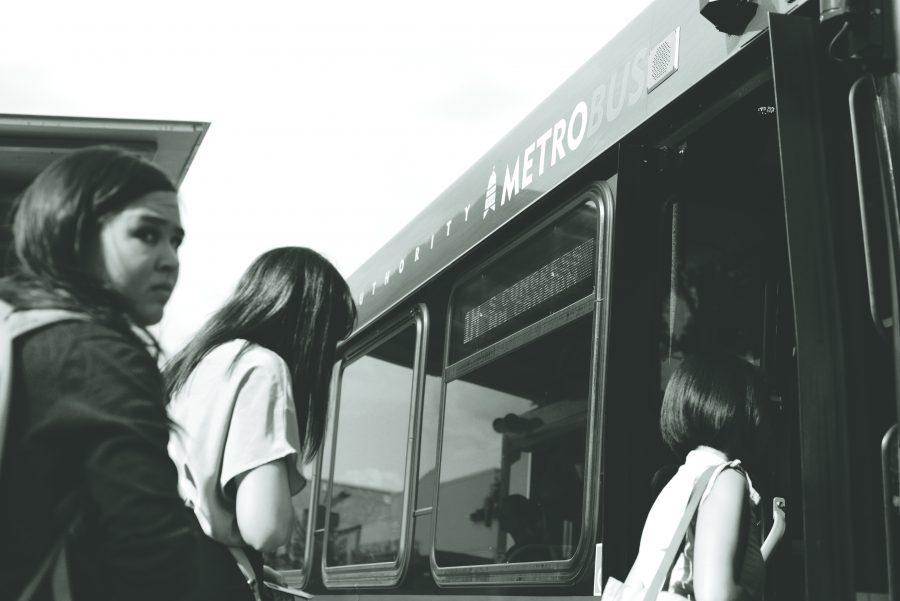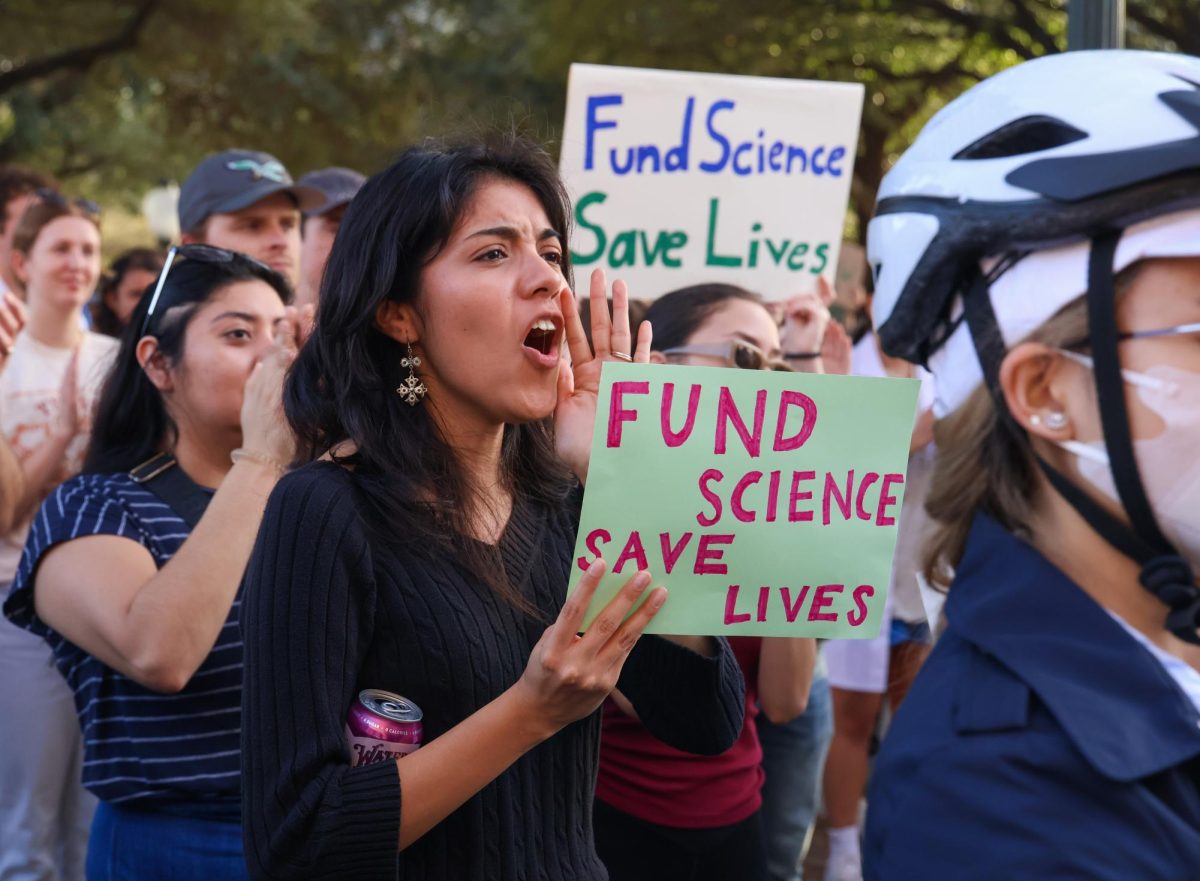To increase public transit and reduce Austin congestion, Capital Metro will launch MetroRapid, a bus line which will include more direct routes, fewer stops and the use of transit-priority lanes, on Sunday.
The new service includes higher-capacity vehicles with free Wi-Fi and technology that syncs with stoplights to hold the light green if the bus is behind schedule. Stations will have arrival information that refreshes every 90 seconds.
CapMetro spokeswoman Melissa Ayala said fare changes will include a $1.50 premium for services that offer more direct routes and limited stop service, such as MetroRapid. There will be no fare changes to regular service in 2014.
According to Blanca Juarez, UT Parking and Transportation Services spokeswoman, University students, faculty and staff will continue to have free access to CapMetro transportation, including MetroRapid, with valid University IDs.
“During the early development stages of this new service, the University worked closely with [CapMetro] to make sure that these routes provided service to the University,” Juarez said.
There will be 77 stations along MetroRapid routes 801 and 803, including 12 stations near the University and downtown areas. Ayala said CapMetro projects up to 21,000 boardings per weekday in the first two years of operation of Rapid 801.
According to Juarez, 2 to 3 million rides per year are provided on mainline services to faculty, staff and students. Juarez said she did not have information about the percentage of students who live near Rapid 801, the frequency of use or the percentage of students, faculty and staff who use CapMetro services.
Ayala said MetroRapid cost $47.6 million, and 80 percent of the project was funded through a Federal Transit Administration grant program. According to Ayala, CapMetro currently has planned only MetroRapid routes 801 and 803, but there is a possibility for expansion through the Project Connect partnership with Austin, the Capital Area Metropolitan Planning Organization and Lone Star Rail.
The increased services follow a controversial decision in the fall to phase out shuttle routes on Cameron Road and Wickersham Lane based on ridership data. The Cameron Road route will be shortened and renamed Camino La Costa, which will operate until the end of the semester, while the Wickersham Lane route will be merged into two other stops: Route 20 Manor/Riverside and Route 100 MetroAirport.
Columbia Mishra, Graduate Student Assembly president, said University and CapMetro liaisons attended assembly meetings in December to discuss the PRC route, which connects the main campus to the Pickle Research Campus. The route will transition to Rapid 803 this summer, but she said she is concerned with how the PRC route change will affect students.
“As pointed out by students during discussion at our December meeting, there will be more stops, as this is not a direct route from campus to PRC campus and will have both students and local passengers,” Mishra said.
Changes to UT shuttles:
Route WL Wickersham Lane: transitioned to Route 100 MetroAirport and Route 20 Manor/Riverside, which will be realigned from Red River Street to Robert Dedman
Route CR Cameron Road: shortened and renamed Route CLC Camino La Costa
Eliminated part of Route CR: riders may use Route 37 Colony Park/Windsor Park, which will be realigned from Robert Dedman and Red River to 23rd Street, San Jacinto and MLK
Combined Route RR/CR Red River/Cameron Road: Red River will continue normal service and CR will be replaced with Route CLC
Combined Route WL/CP Wickersham Lane/Crossing Place: both will continue normal service as uncombined routes





















